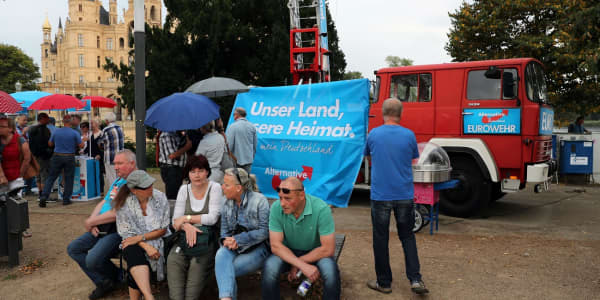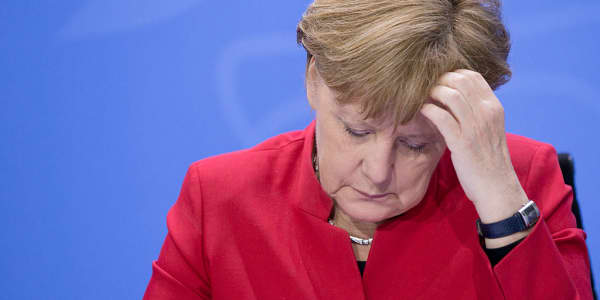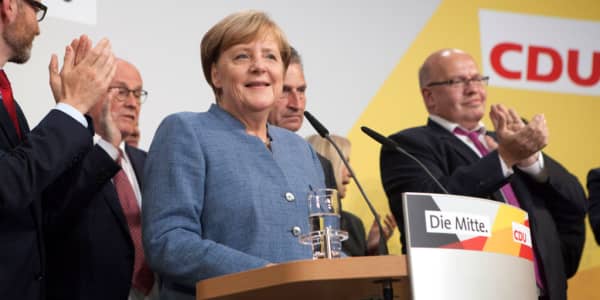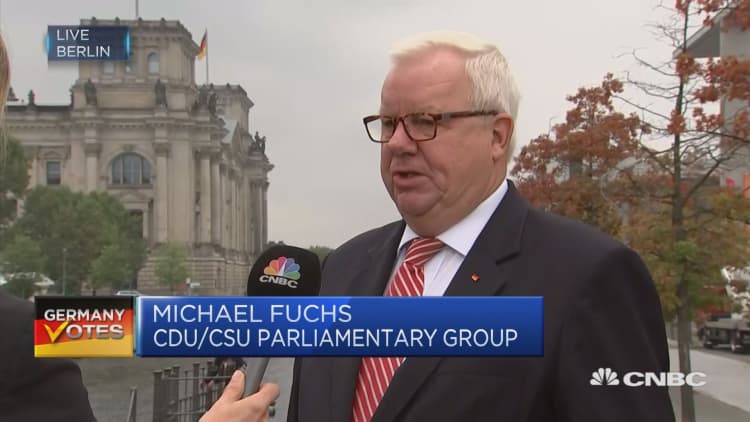
Angela Merkel's conservative bloc will be the largest party in the next German parliament, but provisional election results point to a worse-than-expected majority for the German chancellor.
Merkel's center-right Christian Democratic Union (CDU) and its Bavarian sister-party the Christian Social Union (CSU) won 33 percent of the vote. It would make them the largest parliamentary group, but that is down from 41.5 percent in the last election in 2013 and lower than recent polling. It is also their worst result since 1949, according to Reuters.
Speaking after the exit polls, Merkel said her party had hoped for a better result at the federal election but was happy that it had achieved the main goals of the campaign. She vowed to win back voters from the nationalist Alternative for Germany (AfD) party.
The center-left Social Democrats (SPD), which are currently in a coalition with Merkel, slumped to 20.5 percent - a new post-war low. Party leader Martin Schulz said it was a "bitter day" for Germany's social democrats. He added that the result meant it was clear the party should go into opposition and he would seek re-election as party leader in December.
The far-right Alternative for Germany (AfD) finished third and will enter parliament for the first time with a 12.6 percent of the vote. Only founded in 2013, the AfD party will be the first nationalist, right-wing party to enter the German parliament since World War II.
Campaigning on an anti-immigrant, anti-euro stance, the AfD has become something of a protest party in Germany, mopping up voters on both sides of the political spectrum who feel disenfranchised and disaffected by Merkel's policies over recent years.
'A so-called Jamaica coalition'
A definitive final election result could take until Tuesday to be announced. Merkel's conservative bloc will then look to form a coalition with rival parties which could take months, according to some analysts. The pro-business FDP party, which looks set to win 10.7 percent of the vote, indicated that it would be open to coalition talks with Merkel's conservatives but leader Christian Lindner said that it would require a change of course from the German chancellor.
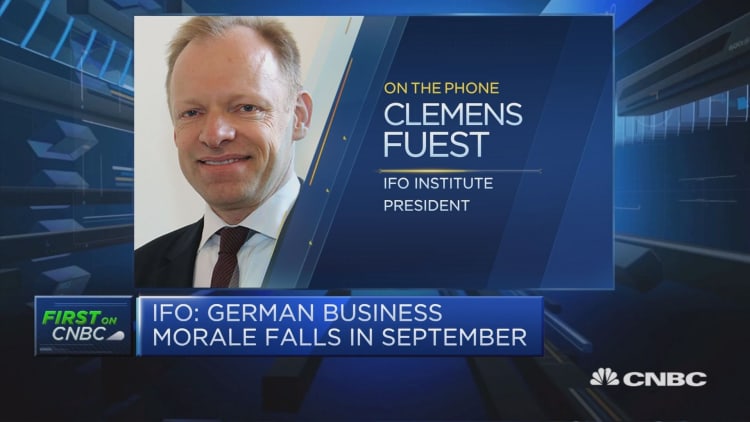
"As anticipated, the far-right Alternative for Germany (AfD) fared better than predicted in the final opinion surveys. A disastrous result for the Social Democrats (SPD) means that the party of Merkel's challenger Martin Schulz will go into opposition – and that CDU/CSU, the liberal FDP and the Greens will have to begin talks to form a so-called Jamaica coalition, Germany's first four-party government in decades," Carsten Nickel, deputy director of research at Teneo Intelligence, predicted in a research note on Sunday evening.
"While this government might at times produce noise, it will continue a centrist course, which will include a pragmatic and incremental approach to euro zone build-out with France."
He added that from a market perspective, euro zone build-out will be the main item to watch as coalition talks unfold. A so-called "Jamaica coalition" is so named due to the colors of the political parties involved. This was seen as the most likely scenario before the vote took place.
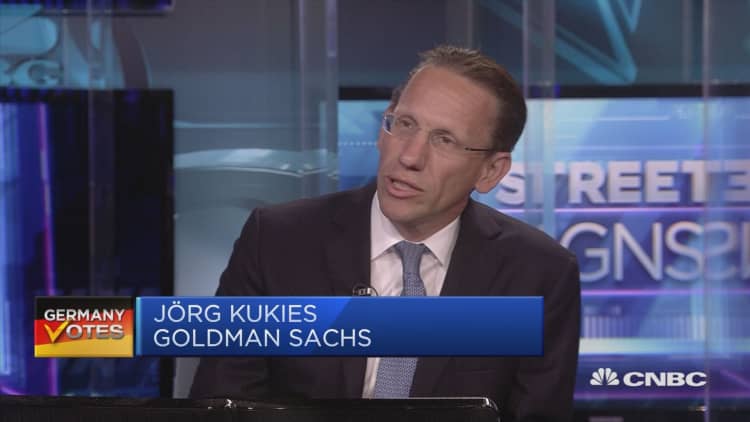
Complex electoral system
Germany's complex electoral system means that coalition governments tend to be the norm in the country. The Bundestag must convene within 30 days of the vote but government formation could take up to 100 days.
If Merkel's party manages to successfully form a coalition then she herself must be elected as chancellor with an absolute majority by the Bundestag's members at a later date. The candidate for chancellor is from the party that wins the most votes.
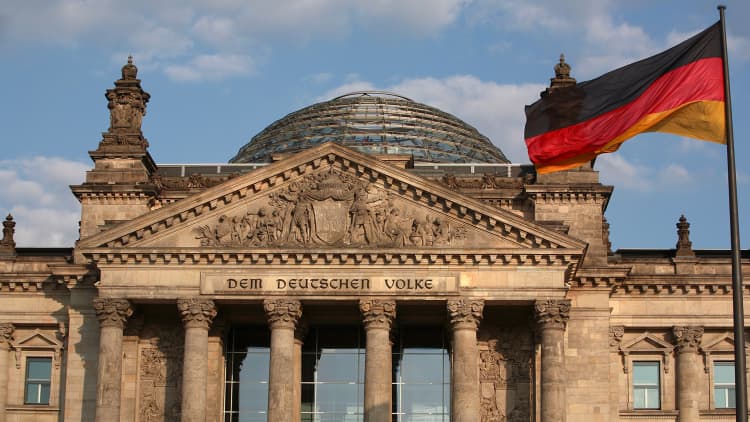
While left-wing parties like the Social Democratic Party (SDP) have seen some of their traditional voter base (working-class voters from more industrial parts of the country) go towards the AfD, so too has Merkel's conservative alliance of the Christian Democrats (CDU) and Christian Social Union (CSU) with some voters finding her liberal immigration policy hard to swallow.
In particular, Merkel's decision in 2015 to allow over 1 million refugees, mainly coming from the Middle East, to enter the country during Europe's migrant crisis did not go down well with many voters.
In addition, many Germans have resented what they feel is their country's propping-up of the euro zone following bailouts of countries like Greece, Portugal, and Ireland.
—CNBC's Holly Ellyatt and Reuters contributed to this report.



